Cultural Studies 50 Years On
Cultural Studies 50 Years On
History, Practice and Politics
Edited by
Kieran Connell and Matthew Hilton
London New York
Published by Rowman & Littlefield International, Ltd.
Unit A, Whitacre Mews, 26-34 Stannary Street, London SE11 4AB
www.rowmaninternational.com
Rowman & Littlefield International, Ltd. is an affiliate of Rowman & Littlefield
4501 Forbes Boulevard, Suite 200, Lanham, Maryland 20706, USA
With additional offices in Boulder, New York, Toronto (Canada), and Plymouth (UK)
www.rowman.com
Selection and editorial matter Kieran Connell and Matthew Hilton 2016
Copyright in individual chapters is held by the respective chapter authors.
Cover image, News in Briefs, Sarah Taylor Silverwood, All Rights Reserved, DACS 2016. Artwork commissioned as part of CCCS 50 exhibition held at the Midland Arts Centre, Birmingham, summer 2014.
All rights reserved . No part of this book may be reproduced in any form or by any electronic or mechanical means, including information storage and retrieval systems, without written permission from the publisher, except by a reviewer who may quote passages in a review.
British Library Cataloguing in Publication Data
A catalogue record for this book is available from the British Library
ISBN: HB 978-1-78348-392-1
PB 978-1-78348-393-8
Library of Congress Cataloging-in-Publication Data Available
ISBN: 978-1-78348-392-1 (cloth : alk. paper)
ISBN: 978-1-78348-393-8 (pbk. : alk. paper)
ISBN: 978-1-78348-394-5 (electronic)

The paper used in this publication meets the minimum requirements of American National Standard for Information SciencesPermanence of Paper for Printed Library Materials, ANSI/NISO Z39.48-1992.
Printed in the United States of America
Contents
Kieran Connell and Matthew Hilton
Dennis Dworkin
Geoff Eley
Ann Gray
Kieran Connell and Matthew Hilton
Rosalind Brunt
John Clarke
Tony Jefferson
Lawrence Grossberg
Gregor McLennan
Maureen McNeil
Jackie Stacey
Richard Johnson
Iain Chambers and Lidia Curti
Mikko Lehtonen
Keyan Tomaselli
Huang Zhuo-yue
Chas Critcher
Dorothy Hobson
Becky Conekin
Jo Littler
Interviewed by Kieran Connell
There are a great many people who have made critical contributions to the production of this volume and the conference on which it was based. We would like to thank each participant in the conference at Birmingham both speakers and audience members for creating such an intellectually charged, emotional occasion. We acknowledge the generous support of the Arts and Humanities Research Council (AH/K000500/1) which funded the wider project we undertook on the history and archives of the Centre for Contemporary Cultural Studies (CCCS), and the University of Birminghams more recent management who paid for the conference. There are a number of people without whom the conference itself would not have been possible. These include Sally Baggott, a former CCCS student who helped us craft our ultimately successful bid for funds towards the conference and maintained a strong interest in the project throughout. Herjeet Marway, now a lecturer in philosophy, was at the time our administrator and essentially the foundation upon which the whole event rested. In the production of this volume we would like to express our gratitude to Jamie Perry for his assistance with proofreading, Bethan Strange for her work on the index and our editors at Rowman & Littlefield. Finally, we are profoundly grateful for the generosity of the late Michael Green and Stuart Hall. Without their guidance and support it is unlikely the entire project to mark cultural studies 50 years on would ever have been possible.
Kieran Connell and Matthew Hilton
This book is the product of an event to mark the 50th anniversary of the establishment of the Birmingham Centre for Contemporary Cultural Studies (CCCS). The origins of this famous and influential academic experiment are well known. Having been appointed professor of English at the University of Birmingham in 1962, Richard Hoggart funded his new centre with an annual grant of 2,400 made available by Sir Allen Lane, the founder of Penguin Books. He could not have envisaged that the project would continue in different guises for almost four decades, or that the work that was produced there would remain influential well into the twenty-first century. What we know now is that the opening of the Centres doors in the autumn of 1964 came to occupy a critical place in histories of cultural studies. It is widely regarded as representing the symbolic birth of a new kind of academic endeavour.
That these origins are so well known is in no small part due to the reflections of members of the CCCS itself. In spite of what was often a problematic relationship between the Centre and history as a discipline, the CCCS was always active in the narration of its own past. In the Centres first annual report Hoggart and his then-deputy Stuart Hall set out their rationale for the CCCS. They explained its relationship to existing intellectual currents and what they saw as the Centres core remit. But they also established an ongoing tradition of appraisal and re-appraisal that examined the Centres present and future always in relation to its past. Following the involvement of the CCCS in the student protest movement of the late 1960s, the interrogation of the Centres past would for long periods become highly charged, particularly over the issues of class, gender, race and sexuality. This would to some extent continue all the way up to the Centres controversial closure by the management of the University of Birmingham in 2002. And it is something that has also characterized cultural studies as it has been taken up far away from Birmingham, in Northern Europe, North America, East Asia and beyond. Just as the Centre explored its own purpose and identity in its annual reports, journals and Stencilled Papers, those working in cultural studies today continue to stage conferences, give papers and write entire books on the subject of what cultural studies is, where it has come from, how it could be improved and where it should be going. What is cultural studies anyway? was the question posed in 1983 by Halls successor as CCCS director, Richard Johnson. It has seemingly never been answered. Rather, it has simply been replaced by the variants Whats Become of Cultural Studies? and Why Cultural Studies?
In some respects, the predominance of such questions invokes the insecurity of what Stuart Hall himself continued to regard as a field of inquiry rather than a conventional academic discipline. There is undoubtedly a strength in the malleability of a field that has always been admirably open to revision. Yet, as questions on the nature of cultural studies proliferate in PhD theses, plenary lectures and special-issue journals, the field is in danger of becoming reduced to them. Alongside ongoing ethnographic or text-based analyses of the changing nature of contemporary culture, methodological self- reflections on what is cultural studies? continue to thrive. It is for these reasons that we are to some extent reluctant editors of yet another contribution to what often appears as the indeterminacy of a discipline forever in its own making.

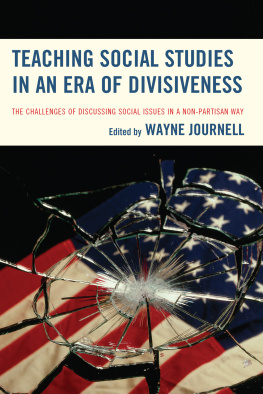
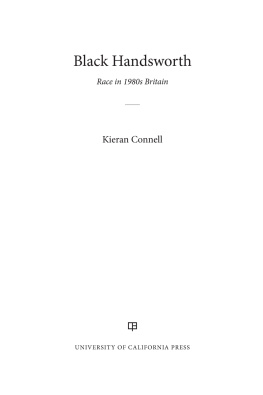

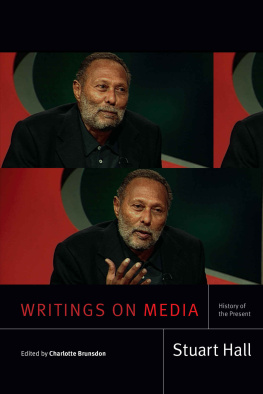
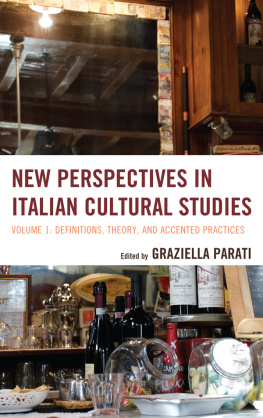
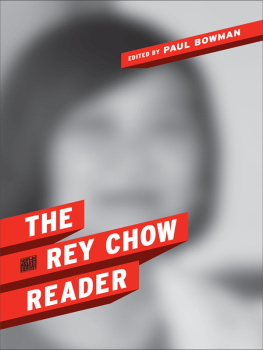
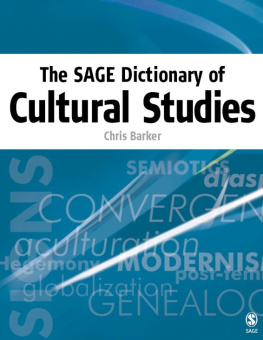

 The paper used in this publication meets the minimum requirements of American National Standard for Information SciencesPermanence of Paper for Printed Library Materials, ANSI/NISO Z39.48-1992.
The paper used in this publication meets the minimum requirements of American National Standard for Information SciencesPermanence of Paper for Printed Library Materials, ANSI/NISO Z39.48-1992.